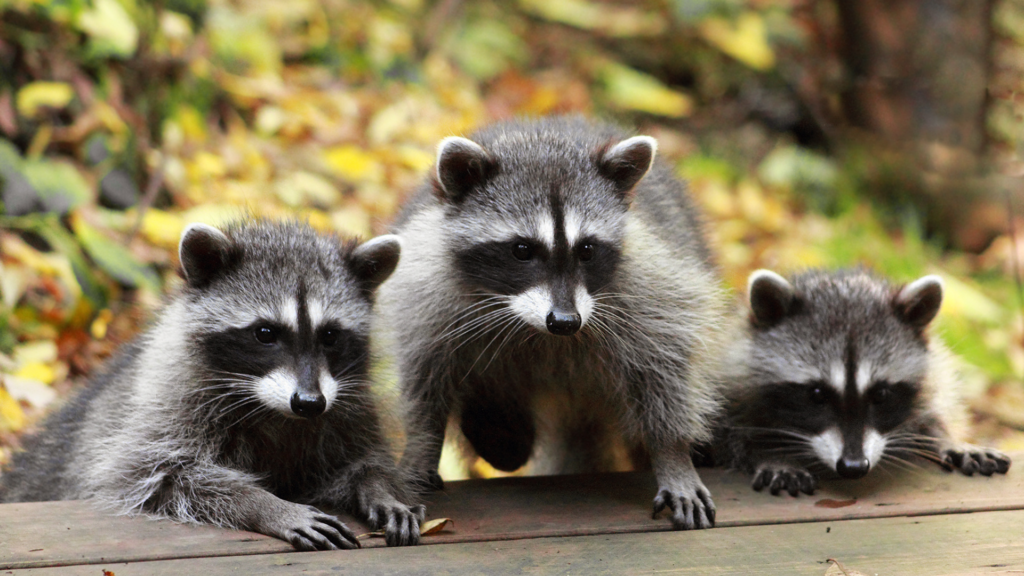Wallonia's 60,000-strong raccoon population has started to spill into Flemish territories, with numerous sightings highlighting their advance.
At least two raccoons were caught on wildlife camera in Zoerselbos, a forest in the province of Antwerp, where traps were subsequently set up. More were spotted in nearby Noorderkempen.
Multiple raccoons have been hit by cars on the E34, suggesting that the population is growing in Ranst too. Similar cases have been seen around Antwerp and Limburg is experiencing an unprecedented rise.
The presence of the furry mammal in Flanders has prompted concerns about their impact on local biodiversity as well as the potential public health issues. Raccoons are native to North America and eat rare birds and amphibians. In addition they are a carrier of roundworm, which can cause serious illness in humans.
"It's vital we get them all out of the wild before it's too late. Although I fear we are already too late," Zookeeper Simon Renckens from the Nature Aid Center told Het Nieuwsblad. "I suspect that we are underestimating the size of the population."
From liberation to supremacy
Various theories are circulating about how raccoons came to be so prevalent in Belgium – first finding home in Wallonia and now setting up camp in Flanders.
One particularly far-fetched tale tells of a bombing in Germany in World War Two in which a fur factory was hit, resulting in the escape of thousands of raccoons into the German countryside. Some allege that NATO soldiers in France induced a second baby boom in the 1960s when they released their mascots into the wild.
Since the early 2010s, Wallonia has struggled with the nuisance caused by raccoons. Although harmless, the animals are difficult to get rid of once settled. The region has become increasingly aware of the effects of a soaring raccoon population: the creatures are not uncommonly found in the lofts of buildings and have been known to scavenge bountiful food supplies in kitchens and outdoor bins.
Related News
- Belgian travellers fined €1,600 for eating hedgehogs
- Environment minister calls for plan to curb raccoon boom
- Wallonia's beaver population is increasing steadily, studies show
Although the animal is listed as an invasive species of concern within the EU, "no European country currently has an ambitious management strategy for this species, despite alarm bells ringing from people on the ground, including certain agents from the Walloon Nature and Forest department," Walloon Environment minister Céline Tellier's office stated in July.
Raccoons are not the only animals that Belgium regards as problematic. The Brussels-Capital Region has taken active measures to curb an explosion in numbers of pigeons and rats, who have enjoyed ideal mating conditions in recent years thanks to the reduction in periods of cold.

